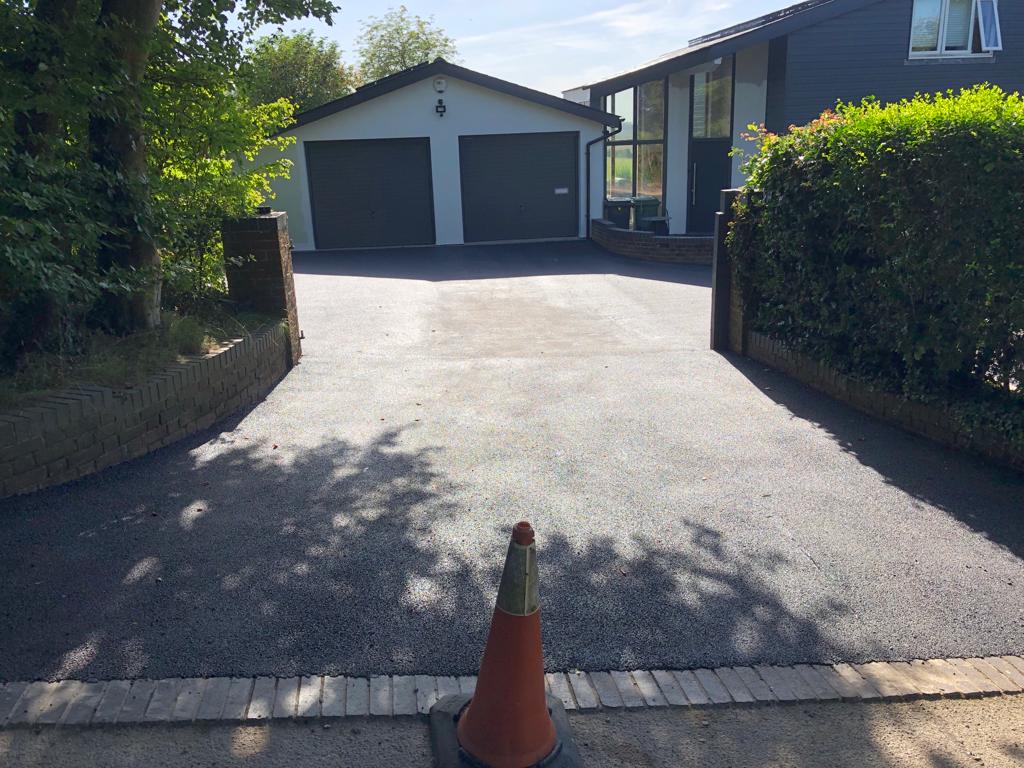When it comes to surfacing solutions for roads, driveways, car parks, and hardstands, asphalt and bitumen are two commonly used terms—but they’re not interchangeable. While often confused, each plays a distinct role in pavement construction and offers different advantages depending on the project. At Little River Road Tech in Little River, VIC, we specialise in both asphalt and bitumen applications and help clients choose the right option based on durability, cost, and performance needs.
Understanding the differences is crucial for making informed decisions about your next surfacing project.
1. Composition
Bitumen is a binding agent. It’s a black, sticky substance derived from crude oil refining. On its own, bitumen is not a finished surface—it’s a component used to bind aggregate in road construction.
Asphalt, on the other hand, is a composite material. It combines bitumen with crushed stone and sand (aggregate), forming a hot or warm mix that is laid and compacted to create a durable finished surface.
Bitumen = binder
Asphalt = finished mixture
2. Application
Bitumen is used in sealing applications or as a base coat. In many rural or low-traffic settings, bitumen is sprayed directly onto a prepared surface and covered with aggregate to create what’s known as a Spray & Seal surface.
Asphalt is applied hot and laid using paving machinery. It is typically used in higher-traffic areas where more structural integrity and smoother finishes are required.
- Bitumen: sprayed and sealed
- Asphalt: mixed and machine-laid
3. Surface Finish
Bitumen surfaces tend to have a slightly rougher and more textured appearance, especially in Spray & Seal applications. This provides good traction and is suitable for roads or rural driveways.
Asphalt surfaces are smooth and uniform, giving a sleek, black appearance. This makes asphalt the preferred choice for urban roads, residential driveways, car parks, and areas with frequent pedestrian or vehicle use.
Surface preference depends on:
- Traffic type
- Aesthetic goals
- Budget
4. Durability
Asphalt generally offers greater structural strength and longevity. Its compacted layers are more resistant to wear and deformation, especially under heavy or constant traffic.
Bitumen is more flexible and cost-effective but may require earlier maintenance or resealing. It performs well in areas with lighter traffic loads and where cost-efficiency is a key concern.
- Asphalt: high durability, longer lifespan
- Bitumen: cost-effective for light-duty areas
5. Cost Considerations
Bitumen-based treatments, like Spray & Seal, are typically less expensive to install. They require fewer materials, less preparation, and can cover large areas quickly.
Asphalt, while more expensive upfront, may offer better long-term value in high-use settings due to its durability and reduced maintenance frequency.
At Little River Road Tech, we guide property owners across Little River, VIC on the best material to suit their budget and functional requirements.
6. Maintenance Needs
Bitumen surfaces may need more frequent resealing to retain their waterproofing and binding properties. This is especially true in areas subject to high UV exposure or heavy rain.
Asphalt surfaces tend to be lower maintenance over time, though they may eventually require resurfacing or crack sealing depending on usage and age.
Proper maintenance extends the life of both surfaces, but understanding the maintenance needs upfront can help with budgeting and long-term planning.
Conclusion
While asphalt and bitumen are closely related, they serve different purposes in surface construction. Bitumen is a binder or sealing agent, while asphalt is a complete surfacing material. Choosing between the two depends on your project’s traffic load, location, finish preferences, and budget.
For expert advice and high-quality surfacing work in Little River, VIC, contact the team at Little River Road Tech. We provide both asphalt and bitumen solutions tailored to your site conditions and long-term goals. Let us help you choose the right approach for performance that lasts.
Call us on: 03 4159 2883
Click here to find out more about Little River Road Tech
Click here to complete our contact form and see how we can help with your road needs.

